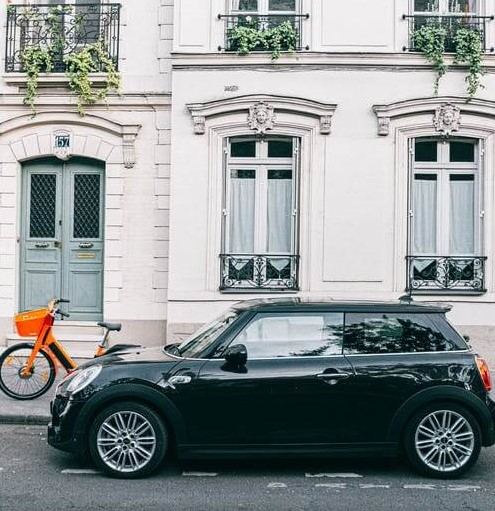Lockdown Ride

On March 11, 2020, pictures of empty tourist hotspots such as Milan's Piazza del Duomo, New York's Times Square and Kyoto's Kinkaku-ji Temple post-COVID-19 lockdown circulated the internet.
Around the world, air pollution levels have fallen, satellite images showing dramatic drops up to 30%. The most astonishing decrease in pollution levels was at the source of the epidemic: Wuhan, China. However, a car ride through southern Paris on March 19 paints an interesting local picture.
This satellite image from NASA shows the vastly reduced nitrogen dioxide levels around Wuhan, China as a result of the COVID-19 coronavirus.
Due to businesses closing and a reduction in travel, the virus has cut the country’s carbon emissions by 25%.https://t.co/BgYyUyxqNu pic.twitter.com/o8xSRLyIrO— Climate Strategy (@ClimateSt) March 7, 2020
Paris offers a charming mix of the gritty and glittery. The colloquially-known City of Lights has a considerable population size, bringing urban pollution and trash-littered streets along with it. In Paris, the post-lockdown environmental shift was largely related to class differences rather than the collective absence of humans.
A busy street in Paris. Image credit: Pexels.comIt's day three since conditional restrictions on movement were officially declared by the French government. It's 19 °C outside, clear and sunny as a summer day.
Despite the lockdown, there are still a great number of cars on the southern highway leading from the suburbs to the Porte d’Orleans. Approaching the 14th arrondissement traffic eases and empty buses pass by with somewhat relaxed-looking drivers.
There are coffee cups strewn atop bus stop seats, and elderly people hold their Parisian trolley bags in the shade.
Litter rolls around the streets and trashcans overflow nearby. There are few people on the sidewalks engaging in perfunctory activities: dog-walking, jogging, returning from boulangerie runs with baguettes in crooks of arms. Police officers are on patrol duty.
It seems like a regular, slow day in the 14th, only the arrangements of chairs inside restaurants and closed shops say otherwise.
The imagery considerably changes approaching the 7th arrondissement where AUP is located. As affluence increases, from Avenue Montparnasse's business hotspots to the trendy Bosquet neighborhoods, spaces appear to be cleaner.
A metro stop outside the Galeries Lafayette. Image credit: Creative CommonsIn the 7th, there is less movement, only a woman cycling with her toddler behind her in a buggy and two stretching yogis in the Jardin de l’Entendant.
It would appear that the richer the neighborhood, the more compliant with the lockdown and the cleaner the spaces have become. Even further, the reports of noncompliant residents in the migrant-heavy 18th district are overflowing. Thus, environmental outcomes cannot only be due to social distancing but rely heavily on class.
I canali di Venezia senza traffico di barche!!
Il risultato? Acqua limpidissima
Ph. Venice pictures pic.twitter.com/KGsKWNd56u— Albert Folaz (@FolinAlberto) March 11, 2020
From the much less opaque waters of the Venice Canal to Parisians' changing routines, it is clear how much humans pollute the environment.
Climate change researchers continue to report reduced CO2 emissions as the global economy slows down.
For people who have remained home since the beginning of lockdown, it's hard to notice the difference from a windowpane or a balcony. But the change is real.
In our survivalist retreat, the environment, like a jilted lover, is doing better.









